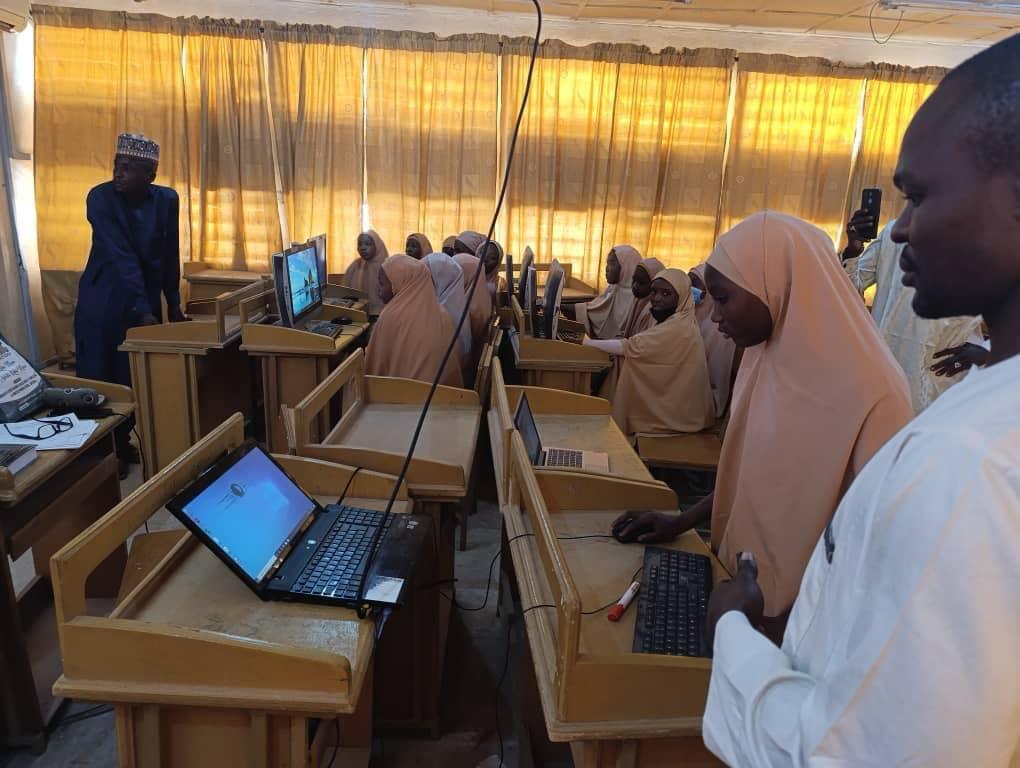The objective of this activity is to support the provision of basic digital literacy training and to establish a remote learning platform for secondary school students.
Specifically, digital literacy training will equip students with digital literacy skills and knowledge that includes: (a) using digital mobile devices; (b) searching, locating, assessing and critically evaluating information found on the web; (c) navigating successfully the non-linear medium of digital space; (d) learning, reading and deducing information from visuals and audio; (e) creating new learning outputs using digital technology; (f) accessing online content; and (g) networking and collaborating. Training will also be provided in online safety to prevent adolescents from predatorial behavior and exploitation. Training will be provided on electronic tablets with relevant applications and an internet connection. It is expected that students will receive at least two to three hours of basic digital literacy training per week. The subcomponent will finance costs and equipment of the training, appropriate applications and internet connectivity. The digital literacy training will initially be provided in 760 SSSs.
To respond to the needs that have become increasingly apparent during the COVID-19 crisis, this subcomponent will also support a blended learning approach using technology and media (TV and radio) to implement remote and distance learning programs. This activity will establish a remote distance learning platform to ensure that the gender divide is not further exacerbated during and after the extended lock down periods. All students, particularly young girls, will have access to education regardless of their geographical location. Specifically, they will be provided with a digital platform that includes: (i) a remote learning program; (ii) accessibility in both an offline and online environment ensuring that students benefit from inclusive learning experiences in both content and access to digital materials; and (iii) lessons to be broadcast by subject and grade through radio and TV for students to catch up on the learning they lost due to COVID- 19 school closures.


An integrated remote learning method will be developed to provide access to quality learning in both an offline and online environment ensuring that students benefit from inclusive learning experiences in both content and access to digital materials. As such, a learning management system (LMS) will be designed for the centralized administration and management of the courses and curriculum content based on students’ performance. A digital curriculum will be developed that includes syllabus and content across digital learning streams to enable conversion of physical content into digital forms for students’ remote learning. The content will be rebuilt into media audio-visual content (which can also be used for broadcasting on TV and radio). The design of this activity will consider the poor power supply and limited internet connectivity. To ensure inclusive access regardless of connectivity, students will be able to access learning material that can be downloaded offline. Lesson that are uploaded will be pre-recorded in both audio and video formats, using interactive platforms to respond to questions from students. Under this component, other relevant skills training could be piloted in selected communities.
Implementation arrangements: The project, through a technical implementing partner, will provide training to computer teachers in schools to build their capacity to use technology for remote teaching, to enhance their digital literacy skills, and to develop their capacity on the relevant digital literacy curriculum. The LMS platform designed under this activity will be managed centrally by the SME and SUBEB. The digital literacy training will be provided through an eco-system approach utilizing expertise in the FME/SME, local universities’ information technology (IT) departments, local IT training firms and NGOs. The SPIU and relevant departments will engage with the Ministry of Communications and Digital Economy and the Nigeria Communications Commission to ensure that any infrastructure roll out or special projects will factor in the connectivity needs for the participating schools.

